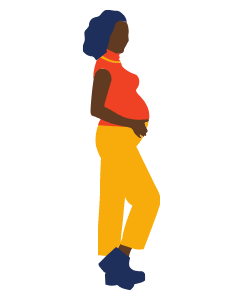Two mistakes that epileptic women often make when they get pregnant
There are a number of mistakes that women with epilepsy make during their pregnancies. Here are two very common ones that women in this situation tend to make:
Not considering the impact that their morning sickness might have on the absorption of their medication
Unless their OBGYN has told them that their anti-seizure medication has side effects that might harm their baby, most women with this condition will continue taking their medication whilst they are pregnant. However, one mistake that is frequently made by epileptic women is not considering how their morning sickness might interfere with the absorption of the tablets they are taking.
For example, if a woman takes a dose of her anti-seizure medication when she first wakes up and then spends the next couple of hours vomiting because of her morning sickness, it is possible that some or even all of the medication she consumed prior to this bout of illness may not have been absorbed by her body.
If a pregnant woman in this situation did not consider this possibility, she could have an epileptic fit. This fit could potentially harm the foetus, if her abdomen collided with any nearby sharp or solid objects during this incident (like the corner of a table or countertop, for example), and could result in her having to make an emergency trip to her OBGYN to get an ultrasound and have further treatment.
Not following the care plan drawn up by their obstetrician and neurologist
A woman with epilepsy who has found out she is pregnant will often be assigned both an obstetrician and a neurologist, who will work together to formulate a care plan that they feel is most appropriate for that woman. This care plan may outline the new medication or a new medication dosage that this person should take, and may detail the diet they need to follow and the amount of sleep they need to get in order to minimise the number of epileptic fits they have whilst pregnant.
One mistake that some epileptic women make is failing to follow this care plan. This is sometimes because they feel that the care plan is too strict or because they have other responsibilities (such as other children or a job) that make following the guidelines difficult.
Failing to stick to this plan could result in epileptic fits, which may cause foetal injuries, or may injure the woman in a way that makes the remaining months of her pregnancy, as well as the delivery at the end of it, far harder to bear. For example, if a woman falls and fractures her pelvis during a fit, this could result in her being in a lot of pain throughout her subsequent trimesters and might lead to her needing to undergo a caesarean section.
Share
